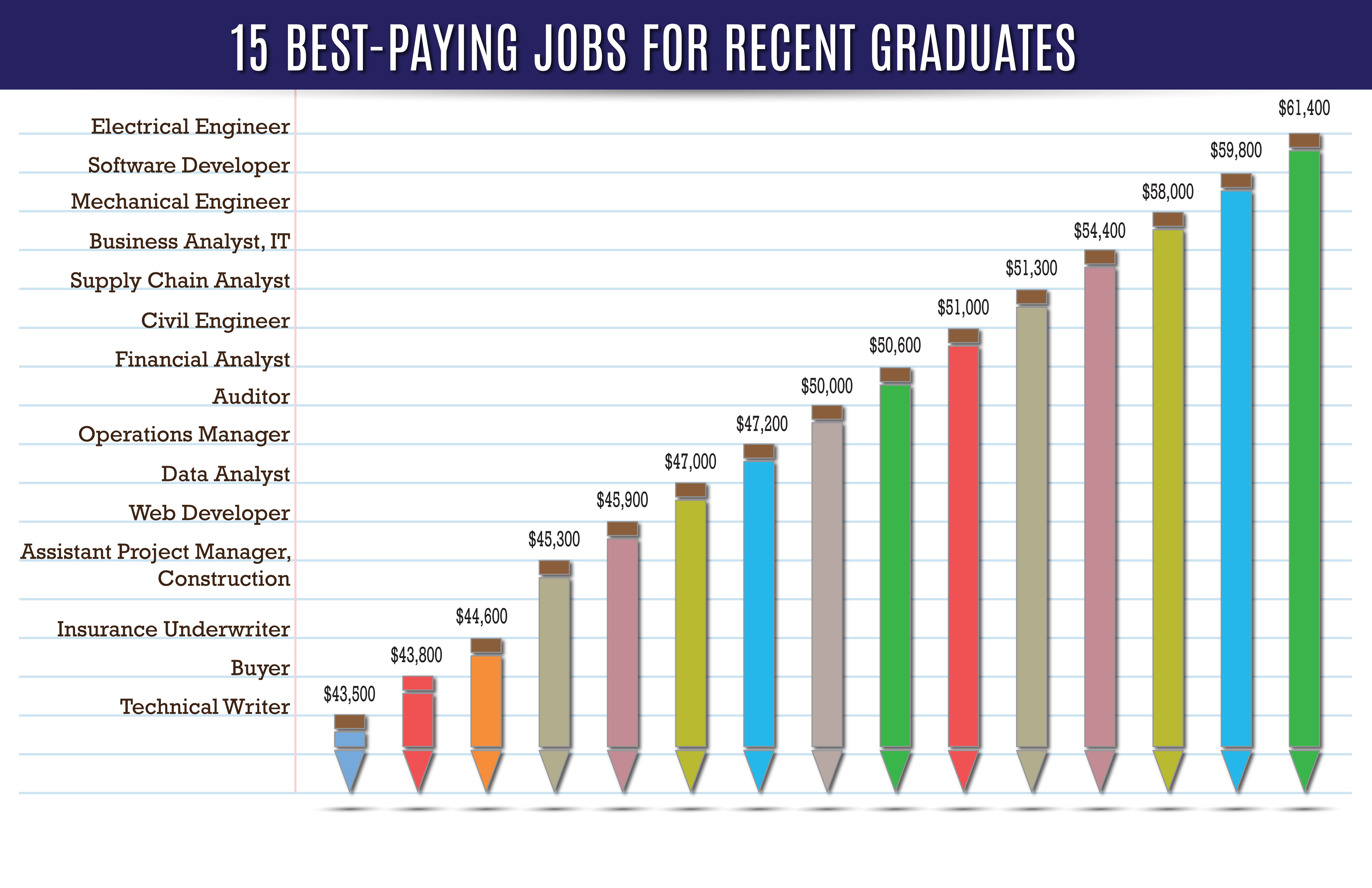What Makes a Job Highly Lucrative?
Several factors contribute to a job being highly paid, including industry demand, skill requirements, and level of expertise. For instance, jobs in the finance sector, such as investment banking and hedge fund management, are often highly paid due to the high level of expertise required and the significant revenue generated by these industries. Similarly, jobs in the technology sector, such as software engineering and data science, are in high demand and command high salaries due to the rapid growth and innovation in these fields.
Another factor that contributes to high pay is the level of education and experience required for a particular job. For example, jobs in the medical field, such as surgeons and anesthesiologists, require many years of education and training, and as a result, are often highly paid. Additionally, jobs that require specialized skills, such as pilots and lawyers, also tend to be highly paid due to the high level of expertise required.
Furthermore, the level of responsibility and stress associated with a job can also impact its pay scale. Jobs that require high levels of responsibility, such as CEOs and CFOs, are often highly paid due to the significant impact their decisions have on the company’s success. Similarly, jobs that involve high levels of stress, such as emergency responders and air traffic controllers, are also often highly paid due to the physical and emotional demands of the job.
Some of the most paid jobs in the world can be found in various sectors, including finance, technology, healthcare, and law. These jobs often require a combination of skills, education, and experience, and offer high salaries and benefits as a result. By understanding the factors that contribute to high pay, individuals can better navigate the job market and pursue careers that offer high pay and personal fulfillment.
How to Land a High-Paying Job: Essential Skills and Qualifications
To land a high-paying job, it’s essential to possess a combination of skills, qualifications, and experience. Education is a critical factor, as many high-paying jobs require advanced degrees or certifications. For example, jobs in the medical field, such as surgeons and anesthesiologists, require many years of education and training. Similarly, jobs in the technology sector, such as software engineering and data science, often require advanced degrees in computer science or related fields.
In addition to education, experience is also a key factor in landing a high-paying job. Many high-paying jobs require several years of experience in a related field, as well as a proven track record of success. For example, jobs in the finance sector, such as investment banking and hedge fund management, often require several years of experience in finance, as well as a strong understanding of financial markets and instruments.
Soft skills are also essential for landing a high-paying job. These skills include communication, teamwork, and problem-solving, and are highly valued by employers. For example, jobs in the consulting sector, such as management consulting and strategy consulting, require strong soft skills, as well as a strong understanding of business and industry trends.
To increase one’s chances of landing a high-paying job, it’s essential to develop a strong set of skills and qualifications. This can be achieved through education, training, and experience. Additionally, building a strong professional network and creating a strong personal brand can also help to increase one’s chances of landing a high-paying job.
Some of the most in-demand skills for high-paying jobs include data science, artificial intelligence, and cybersecurity. These skills are highly valued by employers, and can help to increase one’s chances of landing a high-paying job. Additionally, skills such as cloud computing, blockchain, and the Internet of Things (IoT) are also in high demand, and can help to increase one’s earning potential.
The Top 5 Highest Paying Jobs in the World: Salaries and Benefits
Based on various sources, including job listings, industry reports, and salary surveys, here are the top 5 highest paying jobs in the world, along with their average salaries, benefits, and growth prospects.
1. Anesthesiologist: Average salary: $267,000 – $621,000 per year. Benefits: Comprehensive health insurance, retirement plans, and paid time off. Growth prospects: 10% – 15% annual growth rate. Anesthesiologists are medical doctors who administer anesthesia to patients undergoing surgery. They require a high level of expertise and education, and are in high demand.
2. Investment Banker: Average salary: $200,000 – $500,000 per year. Benefits: Bonuses, stock options, and comprehensive health insurance. Growth prospects: 5% – 10% annual growth rate. Investment bankers work with clients to raise capital, advise on mergers and acquisitions, and manage financial transactions. They require a strong understanding of finance, economics, and business.
3. Software Engineer: Average salary: $150,000 – $300,000 per year. Benefits: Stock options, comprehensive health insurance, and paid time off. Growth prospects: 10% – 15% annual growth rate. Software engineers design, develop, and test software programs for a wide range of industries. They require a strong understanding of computer science, programming languages, and software development methodologies.
4. Physician: Average salary: $200,000 – $400,000 per year. Benefits: Comprehensive health insurance, retirement plans, and paid time off. Growth prospects: 5% – 10% annual growth rate. Physicians diagnose and treat patients, prescribe medications, and perform surgeries. They require a high level of expertise and education, and are in high demand.
5. Data Scientist: Average salary: $150,000 – $300,000 per year. Benefits: Stock options, comprehensive health insurance, and paid time off. Growth prospects: 10% – 15% annual growth rate. Data scientists collect, analyze, and interpret complex data to help organizations make informed decisions. They require a strong understanding of statistics, machine learning, and data visualization.
These jobs are among the most paid jobs in the world, and offer a range of benefits and growth prospects. However, they also require a high level of expertise, education, and experience. By understanding the skills and qualifications required for these jobs, individuals can increase their chances of landing a lucrative career.
The Industries That Pay the Most: Trends and Insights
Several industries are known to offer high-paying jobs, including finance, technology, and healthcare. These industries are driven by trends and insights that create high-paying job opportunities. In this section, we will analyze these industries and discuss the trends and insights that are driving them.
The finance industry is one of the highest paying industries in the world. Jobs in investment banking, hedge fund management, and private equity are among the most paid jobs in the world. The finance industry is driven by trends such as globalization, technological advancements, and changing regulatory requirements. These trends have created a high demand for skilled professionals who can navigate complex financial markets and instruments.
The technology industry is another high-paying industry that is driven by trends such as artificial intelligence, machine learning, and cybersecurity. Jobs in software engineering, data science, and product management are among the most paid jobs in the world. The technology industry is constantly evolving, and companies are looking for skilled professionals who can develop and implement new technologies.
The healthcare industry is also a high-paying industry that is driven by trends such as an aging population, technological advancements, and changing regulatory requirements. Jobs in medicine, pharmacy, and healthcare management are among the most paid jobs in the world. The healthcare industry is constantly evolving, and companies are looking for skilled professionals who can navigate complex healthcare systems and develop new treatments and technologies.
Other industries that offer high-paying jobs include law, consulting, and energy. These industries are driven by trends such as globalization, technological advancements, and changing regulatory requirements. Companies in these industries are looking for skilled professionals who can navigate complex systems and develop new solutions.
In conclusion, the industries that pay the most are driven by trends and insights that create high-paying job opportunities. By understanding these trends and insights, individuals can increase their chances of landing a high-paying job in one of these industries.
How to Negotiate a Higher Salary: Tips and Strategies
Negotiating a higher salary can be a challenging task, but it’s essential to get the compensation you deserve. Here are some tips and strategies to help you negotiate a higher salary:
1. Research the market: Before entering into salary negotiations, research the market to determine the average salary for your position. Use online resources such as Glassdoor, Payscale, and LinkedIn to get an idea of the going rate for your role.
2. Know your worth: Make a list of your skills, qualifications, and achievements. This will help you to confidently articulate your value to the employer and negotiate a higher salary.
3. Prepare your case: Prepare a solid case for why you deserve a higher salary. This should include specific examples of your accomplishments and how they’ve positively impacted the company.
4. Be confident but respectful: When negotiating your salary, be confident but respectful. Avoid being aggressive or confrontational, as this can harm your relationship with the employer.
5. Be flexible: Be open to negotiation and flexible with your salary requirements. Think about what you’re willing to accept and be prepared to make a counteroffer if necessary.
6. Use silence to your advantage: Silence can be a powerful tool in salary negotiations. If the employer makes an offer, don’t immediately respond. Take a moment to think about it and use the silence to your advantage.
7. Get everything in writing: Once you’ve agreed on a salary, make sure to get everything in writing. This includes the salary, benefits, and any other perks or bonuses.
By following these tips and strategies, you can effectively negotiate a higher salary and get the compensation you deserve. Remember to stay confident, be prepared, and be flexible, and you’ll be on your way to a higher salary in no time.
Some of the most paid jobs in the world require strong negotiation skills. By developing these skills, you can increase your earning potential and land a high-paying job. Whether you’re looking to negotiate a higher salary or simply want to improve your negotiation skills, these tips and strategies can help.
The Benefits of High-Paying Jobs: Work-Life Balance and Job Satisfaction
While high-paying jobs are often associated with long working hours and high levels of stress, many individuals find that the benefits of these jobs far outweigh the drawbacks. In addition to the financial rewards, high-paying jobs can offer a range of benefits that contribute to a better work-life balance and increased job satisfaction.
One of the most significant benefits of high-paying jobs is the opportunity for growth and development. Many high-paying jobs offer opportunities for advancement and professional development, which can lead to increased job satisfaction and a sense of fulfillment. Additionally, high-paying jobs often provide access to resources and training that can help individuals develop new skills and stay up-to-date with the latest industry trends.
Another benefit of high-paying jobs is the opportunity for work-life balance. While it’s true that many high-paying jobs require long working hours, many individuals find that the financial rewards and opportunities for growth and development make it easier to balance work and personal life. Additionally, many high-paying jobs offer flexible scheduling and remote work options, which can make it easier to balance work and personal responsibilities.
High-paying jobs can also offer a range of benefits that contribute to increased job satisfaction. For example, many high-paying jobs offer opportunities for creativity and innovation, which can lead to a sense of fulfillment and satisfaction. Additionally, high-paying jobs often provide access to a range of perks and benefits, such as health insurance, retirement plans, and paid time off.
Some of the most paid jobs in the world offer a range of benefits that contribute to increased job satisfaction and work-life balance. For example, jobs in the tech industry often offer flexible scheduling and remote work options, as well as opportunities for growth and development. Jobs in the finance industry often offer access to resources and training, as well as opportunities for advancement and professional development.
Overall, high-paying jobs can offer a range of benefits that contribute to increased job satisfaction and work-life balance. While it’s true that many high-paying jobs require long working hours and high levels of stress, many individuals find that the benefits of these jobs far outweigh the drawbacks.
Overcoming the Challenges of High-Paying Jobs: Stress and Pressure
High-paying jobs can be challenging and demanding, requiring long working hours, high levels of stress, and intense pressure to perform. However, with the right strategies and mindset, it’s possible to overcome these challenges and maintain a healthy work-life balance.
One of the most significant challenges of high-paying jobs is stress. Stress can be caused by a variety of factors, including tight deadlines, high expectations, and a heavy workload. To manage stress, it’s essential to prioritize self-care and take breaks throughout the day. This can include activities such as meditation, exercise, and spending time with loved ones.
Another challenge of high-paying jobs is pressure. Pressure can be caused by the need to meet high expectations, achieve specific goals, and maintain a high level of performance. To manage pressure, it’s essential to focus on the present moment and take things one step at a time. This can include breaking down large tasks into smaller, more manageable chunks, and prioritizing tasks based on importance and urgency.
Long working hours are also a common challenge of high-paying jobs. To manage long working hours, it’s essential to prioritize time management and set clear boundaries between work and personal life. This can include setting realistic goals and deadlines, taking regular breaks, and avoiding work-related activities outside of work hours.
Some of the most paid jobs in the world require a high level of expertise and specialization, which can lead to a sense of isolation and disconnection from others. To overcome this challenge, it’s essential to build a strong support network of colleagues, friends, and family members. This can include joining professional organizations, attending networking events, and participating in online communities related to your field.
Finally, high-paying jobs can also be challenging due to the high level of responsibility and accountability required. To manage this challenge, it’s essential to prioritize accountability and take ownership of your work. This can include setting clear goals and expectations, tracking progress, and seeking feedback from others.
By understanding the challenges of high-paying jobs and developing strategies to overcome them, it’s possible to maintain a healthy work-life balance and achieve success in your career.
Conclusion: Unlocking the Secrets to a Lucrative Career
In conclusion, unlocking the secrets to a lucrative career requires a combination of skills, knowledge, and strategy. By understanding the factors that contribute to a job being highly paid, acquiring the necessary skills and qualifications, and navigating the industries that pay the most, individuals can increase their chances of landing a high-paying job.
Additionally, negotiating a higher salary, managing stress and pressure, and maintaining a healthy work-life balance are all essential components of a successful and lucrative career. By following the tips and strategies outlined in this article, individuals can overcome the challenges of high-paying jobs and achieve their career goals.
Some of the most paid jobs in the world require a high level of expertise and specialization, but with the right mindset and approach, individuals can unlock the secrets to a lucrative career and achieve financial freedom. Whether you’re just starting out in your career or looking to make a transition to a higher-paying field, the advice and insights provided in this article can help you on your journey to success.
Remember, a lucrative career is not just about the money; it’s also about finding fulfillment and purpose in your work. By pursuing a career that aligns with your passions and values, you can create a sense of purpose and meaning that goes beyond just financial rewards.
In the end, unlocking the secrets to a lucrative career requires dedication, hard work, and a willingness to learn and adapt. By following the advice and insights provided in this article, individuals can take the first step towards creating a successful and fulfilling career that brings them financial freedom and personal satisfaction.








